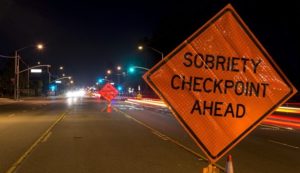Dallas and Fort Worth DWI Attorney
Understanding a DWI Arrest and Trial in Texas and Tarrant County
The moment a police officer pulls you over on suspicion of intoxication can change your life forever. From a suspended license to fines up to $10,000 to jail time, affecting future employment limitations, relationships, education and housing applications, DWIs are not something to take lightly. What happens after you are arrested for DWI and what are your options? What are the hidden costs?
Consulting with a Tarrant County DWI Lawyer can help you learn what lies ahead so you can make an informed plan for dealing with a Tarrant County DWI arrest.

Determining Intoxication
In order to pull over a driver for DWI, a police officer must have probable cause. Of course,
that term can be vague and easily disputed in court, but if you were pulled over it is likely because the officer saw something that he/she construed as a sign of driving while intoxicated.

From there, the officer has several ways to determine if you met the legal definition of intoxication: (a) not having the normal use of mental faculties; (b) not having normal use of physical faculties; or (3) having a blood/ alcohol concentration of 0.08 or greater. They will likely interview you and conduct a recorded field sobriety test which is admissible in court. (A DWI Lawyer should argue that this test is imperfect, as an experienced DWI Lawyer has seen many drivers who simply struggled with walking on a graveled road in high heels, for example.)
They may also ask you to take a breathalyzer test. Many people are of the belief that refusing the test will prevent their arrest. This is patently untrue. In fact, refusing the breathalyzer can bring additional penalties if you are arrested. (Interesting fact: breathalyzer machines have occasionally been known to give inaccurate readings due to common medical conditions like GERD or a hiatal hernia.)
Additionally, even if your blood-alcohol level is below 0.08, you can still be arrested for DWI if the officer feels that you do not have “normal” use of your physical and mental faculties. There may also be a blood draw with a warrant, but a good Tarrant County DWI lawyer will know how to fight involuntary blood draws in some situations.

Arrest
If the officer in Tarrant County feels that you did not provide sufficient evidence that you are not intoxicated, they can immediately suspend your license and make an arrest. You will be taken to jail and likely released on bail. From this point, you have only 15 days from the day of your arrest to fight for an appeal.
If you appeal, you will have what is called an ALR hearing in Tarrant County where you and your Tarrant County ALR lawyer can state your appeal. If your appeal is denied, as most are, your Tarrant County ALR lawyer may be able to help you obtain a Texas Occupational Drivers License so that you make still commute to your job while awaiting your trial.

Navigating Your Criminal Case
A good Tarrant County DWI attorney will help you navigate the murky waters leading up to your trial date which can include several court appearances. Your best shot at a favorable outcome is through a criminal trial, where a qualified Tarrant County DWI lawyer can look at some of the mitigating factors we touched on earlier and argue your case.

In many cases, things are not always as they appear. An experienced DWI Lawyer would say that the majority of people who go to trial have a winnable case, provided they have hired a knowledge and dedicated DWI attorney.
The end result here can go three ways: a not-guilty verdict, in which your arrest is removed from your record and you are free to continue with your life as it was before, a dismissal, or a guilty conviction, which will result in fees that typically range from $1,000 to $10,000, possible jail time and an criminal record that will follow you for the rest of your life, impacting everything from future arrests to job applications.
“Hidden Costs”
In addition to court fees, many people who are convicted of a DWI without adequate DWI legal counsel are surprised to find out that there are various unexpected fees that can add up to thousands of additional dollars on top of the $500-$600 dollars they have likely already paid in court and probation fees. You may be charged with:


● Required DWI-based continuing education classes (which can be upwards of an additional $250)
● A “Civil Surcharge” (which can total up to $6000 in a 3 year span, or up to $2000 annually)
● Monitoring Device (installation and maintenance can cost up to $200)
● Continued testing and counseling (upwards of $400/month)
If you have been arrested for a DWI in Tarrant County, you are likely very concerned about the impact it will have on your freedom, your finances, your job, your future and even your relationships with those around you. You may not realize until it is too late the impact on things like your car insurance or how your new community service hours may affect your life. As an experienced Tarrant County DWI attorney, I can help you lessen this stress by giving you strong, reliable legal counsel that you can trust and advice that will take some of the sting out of the criminal process.
Call as soon as possible so that you can begin working with a Tarrant County DWI Lawyer on your case.

